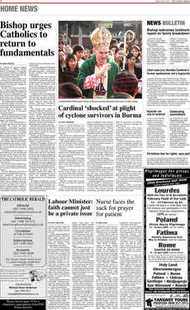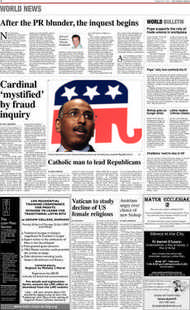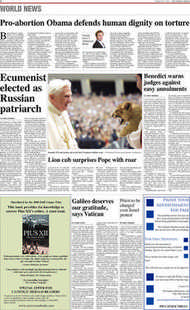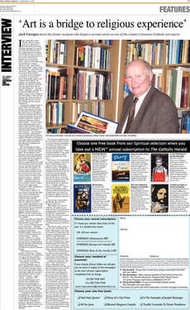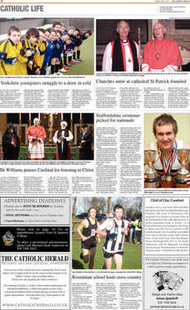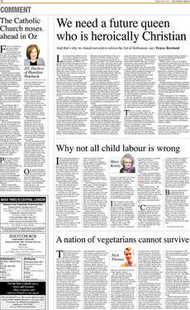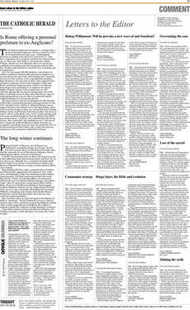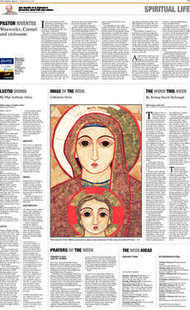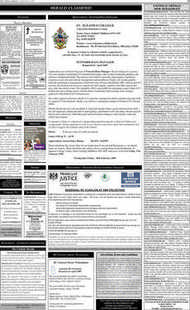Page 6, 6th February 2009
Page 6

Report an error
Noticed an error on this page?If you've noticed an error in this article please click here to report it.
Tags
Share
Related articles
Galileo Causes A Stir
B Ishop
Catholic Church Plans To Honour Galileo With Statue At...
Would Et Shake His Faith? Not At All
Vatican
Vatican Finances Are Shaken By Markets
Galileo deserves our gratitude, says Vatican
BY CAROL GLATZ
GALILEO GALILEI was a genius and a man of faith who deserves the gratitude of the Church, the Vatican has said.
A Vatican statement said the 17th-century astronomer was “a believer who tried, in the context of his time, to reconcile the results of his scientific research with the tenets of the Christian faith”.
It said: “For this, Galileo deserves all our appreciation and our gratitude.” The statement said that Galileo was the first scientist to study the cosmos with a telescope, which opened up a whole new frontier for discovery and forced humanity “to re-read the book of nature in a whole new light”.
“Therefore, the Church wishes to honour the figure of Galileo – innovative genius and son of the Church,” it said.
The statement was released during a Vatican press conference detailing a number of initiatives sponsored by Vatican offices during this year’s International Year of Astronomy.
The international celebration commemorates the 400th anniversary of Galileo’s first discoveries using a telescope to study the night sky.
The Italian scientist was condemned for suspected heresy in 1633 for maintaining that the earth revolved around the sun. He was “rehabilitated” in 1992 by a special Vatican commission established by John Paul II.
Participants at the press conference said that since the scandal had died down the Church can finally look at Galileo in a new light and recognise him as a man of faith who believed science and religion did not have to be at odds.
Archbishop Gianfranco Ravasi, head of the Pontifical Council for Culture, said the Galileo affair “must always bring us – theologians and the Church – back to a critical selfexamination of the past without reservation”.
But he cautioned against merely re-examining the past without forging a new way forward that is open to a mutually beneficial dialogue between science and faith.
The Vatican’s observatory, its culture council and the Pontifical Academy of Sciences will be among 18 institutions taking part in a world congress in May to reexamine Galileo’s trial.
The Stensen Institute, a Jesuit-run cultural centre in Florence, Italy, has organised the gathering.
The head of the Institute, Jesuit Fr Ennio Brovedani, said that for the first time in 400 years all the major players in the Galileo affair will be represented at the congress, with the aim of alleviating the tensions and misunderstandings still clouding the relationship between the Church and science.
blog comments powered by Disqus



